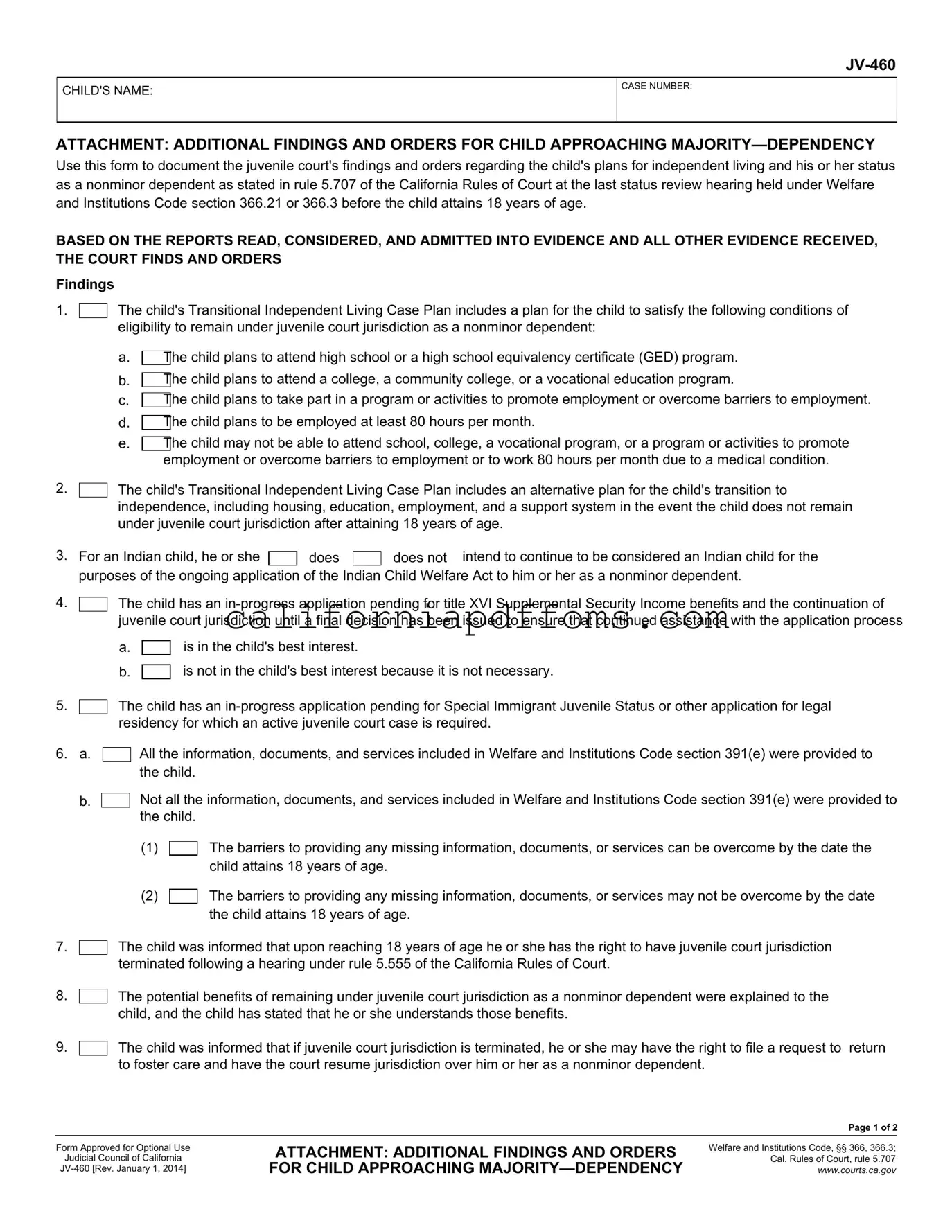Fill in Your California Jv 460 Template
The California JV-460 form plays a crucial role in the juvenile court system, particularly for young individuals nearing the age of majority. This form is designed to capture the court's findings and orders regarding a child's plans for independent living and their status as a nonminor dependent. It is utilized during the last status review hearing before the child turns 18, as mandated by specific provisions in the Welfare and Institutions Code. The form outlines various critical aspects, such as the child's Transitional Independent Living Case Plan, which details their educational and employment goals. These goals may include attending high school, pursuing a GED, enrolling in college or vocational programs, and securing employment. Additionally, the form addresses alternative plans for independence should the child not remain under juvenile court jurisdiction. Notably, it also considers the unique circumstances of Indian children and those applying for legal residency. Furthermore, the JV-460 ensures that the child is informed about their rights upon reaching adulthood, including the potential benefits of remaining under juvenile court jurisdiction and the process for seeking assistance if they choose to transition out of the system. By documenting these findings and orders, the JV-460 form aims to support the child's journey toward self-sufficiency while ensuring that their best interests are prioritized during this critical transition period.
Create Common PDFs
Relative Information - Details pertaining to the restrained individual's compliance with firearm regulations are specifically highlighted.
Am I Exempt From California Withholding - The certified information helps prevent issues with tax compliance for both payees and withholding agents.
